To mark the start of TIFF 2018, we delve into the budding careers of 16 of our favourite emerging actors who have films at the festival. Read all our TIFF coverage here.
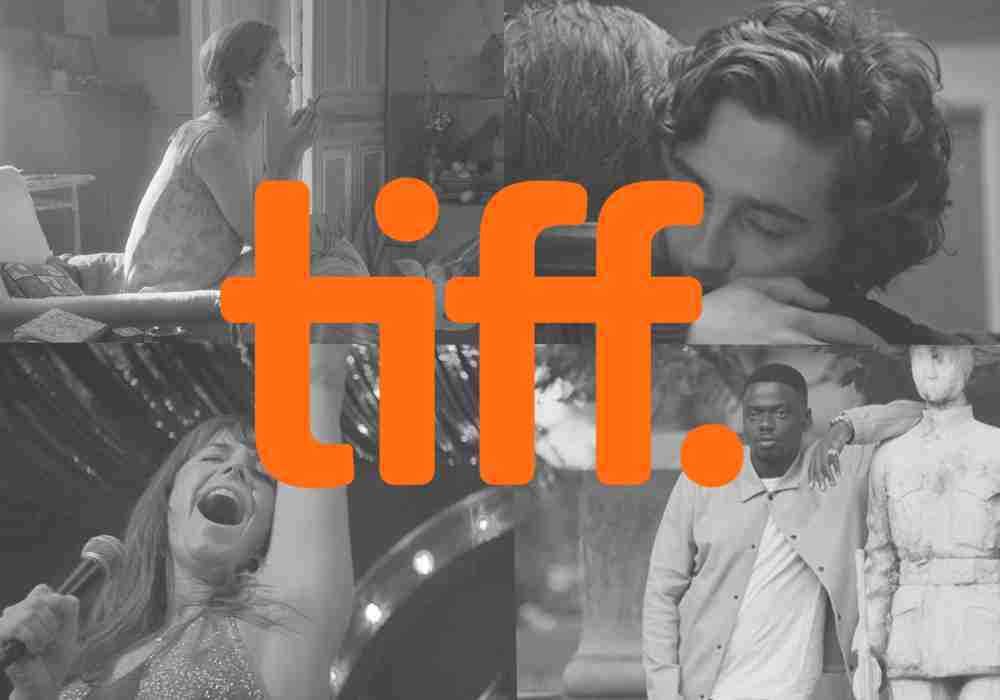
While the amount of films screening at TIFF (which kicks off today and lasts until the 16th) may be overwhelming, sifting through the vast sea of young actors waiting to be discovered is an even more intimidating task. What separates the good from the great? There are hundreds of hopefuls who can simply act naturalistically, but we’ve picked 16 fresh faces (all with films in this year’s programme) who have something more: star presence, a magnetic on-screen charisma that draws us to them. Their careers have just begun, but we believe these are the emerging young actors with the talent to stick around for the long haul.
Mamoudou Athie (The Front Runner)

You probably haven’t seen the role that convinced me Mamoudou Athie is a star, because the film in question is still stuck in limbo, with no distributor in sight. That would be Brie Larson’s wonderful directorial debut, Unicorn Store, which was unfairly dismissed upon its TIFF premiere last year. Larson is the film’s bright and bubbly epicentre, but Athie is a warm and steady presence as her level-headed, caring, thoroughly decent love interest. While his role is not front and centre or positioned as eye-catching, Athie quietly bolsters the film with a grounded performance that helps anchor the fantastical premise to reality. He’s simply an inviting presence, radiating kindness and empathy with incredible ease and a light and breezy sense of humour. It made me yearn to see him as the leading man in many, many rom-coms to come.
Some will recognise Athie from his unconventional romantic lead in Patti Cake$. There, the thin material didn’t give him much to work with, but he brought warmth and humanity to a character who is initially set up as a joke. He’s also a recurring cast member on The Get Down and The Detour — but as of yet Athie has far from broken out, and I’m not sure his TIFF premiere, The Front Runner, will be the film to do it, either. But I hope there’s a future where Athie gets the chance to charm us on screen on a regular basis. – Orla Smith
Jessie Buckley (Wild Rose)
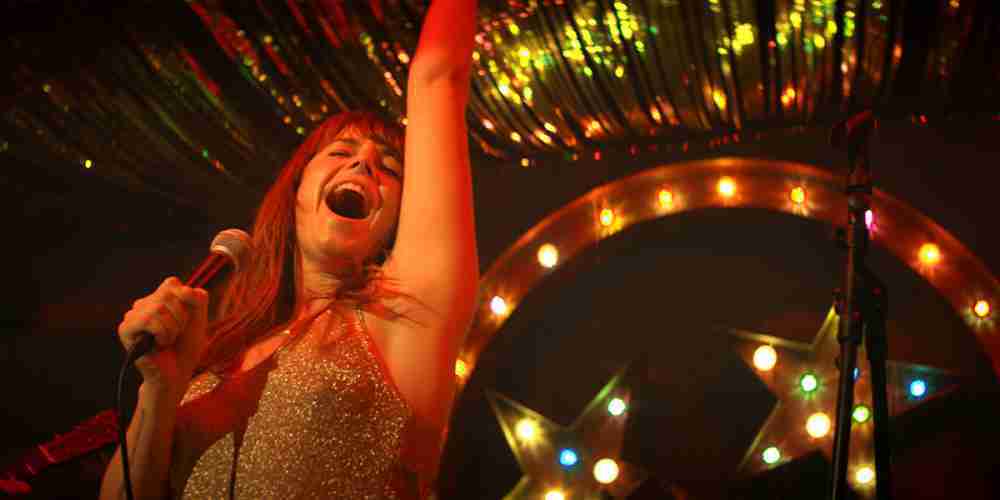
Jessie Buckley featured on my list of the top five breakout performances at the 2018 Sundance Film Festival for her leading role in Beast, a dark, fairy-tale-esque thriller about a female monster. Upon that film’s TIFF premiere last year, the festival also selected her as one of their Rising Stars; she returns to the festival this year as the lead in Wild Rose, a drama about a Glasgow musician who dreams of becoming a Nashville star. The film’s cast includes Julie Walters and Sophie Okonedo, whose clout may mean the film will help give Buckley the broader exposure she deserves. – Alex Heeney
Establishing Shots: Introducing Beast director Michael Pearce
Timothée Chalamet (Beautiful Boy)
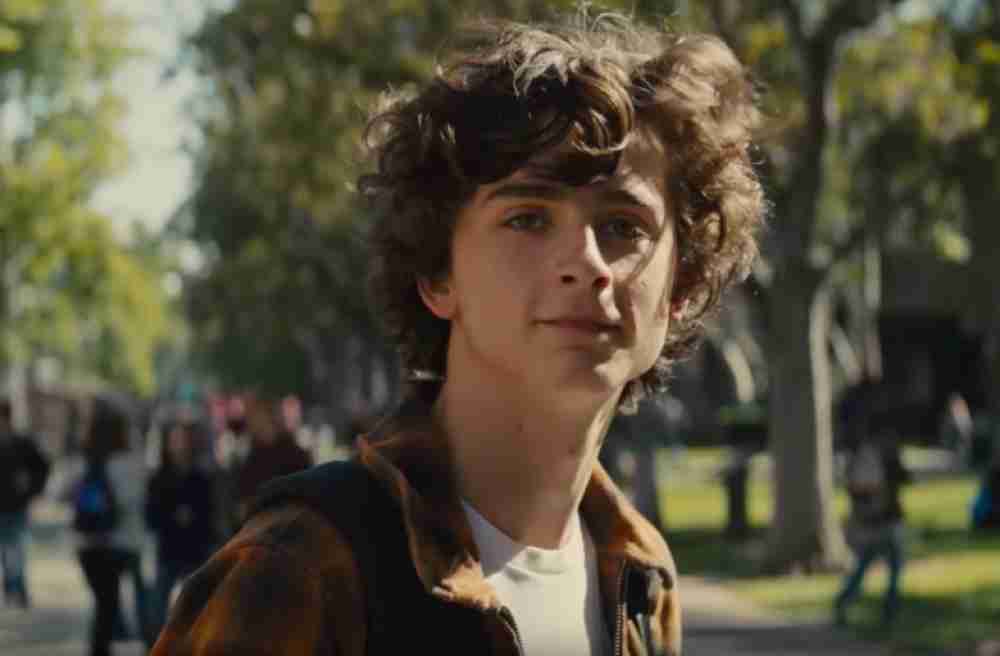
In 2017, Timothée Chalamet went from a nobody to a star, tipped by many as one of the most versatile performers of his generation. Any young actor would kill for a role like Elio Perlman in Call Me by Your Name, for which Chalamet earned his first Oscar nomination at just 22. Elio is a 17-year-old, alive with the volatile and conflicting emotions that first love ignites, feeling everything all at once. For two hours and fifteen minutes, Chalamet is utterly magnetic, energetic, and open. What’s more, you could walk to the next theatre and catch his supporting turn in Lady Bird, so completely different that you’d swear it was another actor entirely. His pretentious Californian douche, Kyle Scheible, was a work of perfectly timed deadpan genius, his withdrawn cool worlds away from Elio’s passion and vulnerability.
Looking through Chalamet’s backlog of work, there’s a wealth of supplementary evidence to his immense talent. He might have ‘broken out’ earlier if his off-Broadway play, Prodigal Son, or Julia Hart’s feature debut, Miss Stevens, had been more widely seen. Both are major parts and fully realised performances, with Prodigal Son even winning him a Lucille Lortel award for Best Actor in an Off-Broadway play. Even in supporting parts, he elevates thin material, like in Interstellar, Love the Coopers, Homeland, and Hostiles. Each role is interpreted thoughtfully, sometimes in a way you might not expect. Whatever the part, he’s spontaneous, unpredictable, and compulsively watchable.
Starting your career with such a ferocious bang is a high wire act for any young actor; we’re all waiting with bated breath to see whether Chalamet will trip or maintain his perfect balance. His big follow-up performance to Call Me by Your Name is an Oscar-tipped turn in drug addiction drama Beautiful Boy — a TIFF world premiere. After that will come a slew of major roles: Henry V in Netflix drama The King, the rumoured lead role in Denis Villeneuve’s Dune remake, and a supporting turn in Greta Gerwig’s star-studded Little Women adaptation. We know Chalamet has the talent, but does he have the restraint and judgement to choose the right direction for his career, when literally any path is open to him? It’s a question that both fascinates and agitates me. – OS
Read our entire Special Issue on Call Me by Your Name, including an in-depth analysis of Chalamet’s performance, in our eBook on the film.
[click_to_tweet tweet=”‘Chalamet interprets each role thoughtfully, sometimes in a way you might not expect. Whatever the part, he’s spontaneous, unpredictable, and compulsively watchable.'” quote=”‘Chalamet interprets each role thoughtfully, sometimes in a way you might not expect. Whatever the part, he’s spontaneous, unpredictable, and compulsively watchable.'”]
Olivia Cooke (Life Itself)
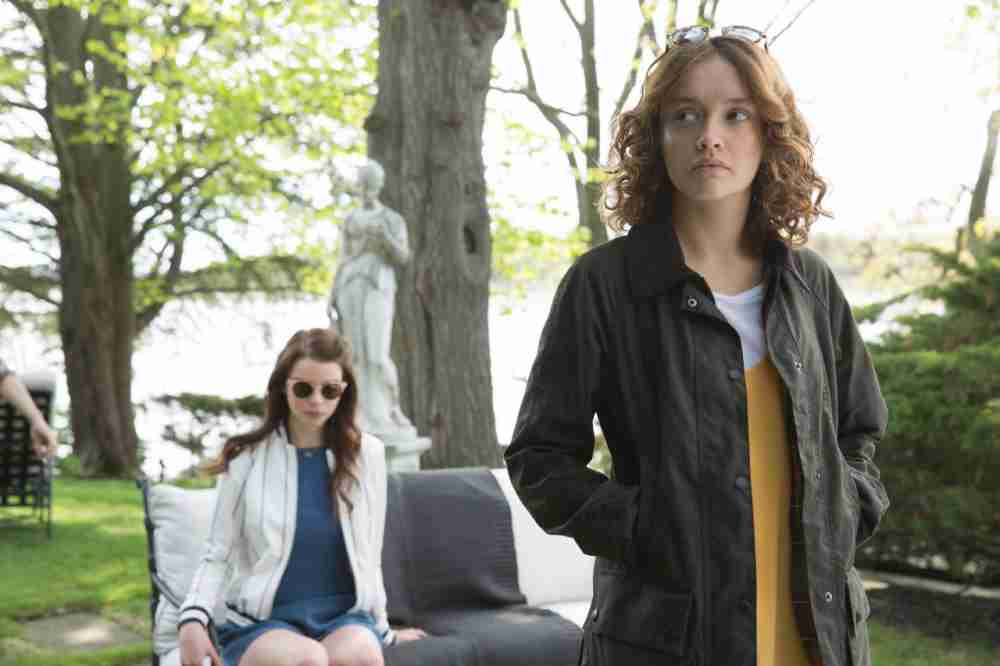
You know an actor is special when they make even the worst films watchable. The Limehouse Golem may have been a drab mess in and of itself, but Olivia Cooke almost convinced me that it was good. Her lead performance as music-hall performer Lizzie Cree is so magnetic and charismatic that I cared deeply about this girl and felt compelled to follow her journey until the end.
Cooke is often stuck with unforgiving roles that she somehow makes the best of. Most egregiously, Steven Spielberg’s disaster of a blockbuster, Ready Player One, cast her in a grossly sexist manic pixie dream girl role. She did her best to bring some inner life to the caricature and ended up being the most compelling presence in the film — which made Tye Sheridan’s mind-numbing blandness as a protagonist even more starkly evident. Every time Cooke excels in an underwritten, secondary role — Me and Earl and the Dying Girl included — it ends up making the film in question a wholly more frustrating experience. Why can’t we watch this same story but with her character in the lead, instead of this lifeless, cardboard cut-out of a man?
Thoroughbreds was a beacon of hope earlier this year. Cooke played a teenage psychopath, which provided her an immensely difficult acting challenge: how do you play someone who doesn’t experience emotions and still make that person feel authentic? The character of Amanda could have been a blank slate, but she feels like a real person in Cooke’s hands. Cooke doesn’t take the easy route of portraying Amanda as evil. Instead, Amanda is simply a hyper-intelligent, calculating, and self-aware girl. Cooke knows that a grounded, understandable character whose logic is easy to follow is far more interesting than a character who can flippantly be dismissed as “crazy” — except, unlike with The Limehouse Golem, this time the material works with her instead of against her.
Cooke has a few lead roles in development, including Alice Marble in the biopic Courting Danger and the imminent TV miniseries version of Vanity Fair. At TIFF, Cooke can be seen in the star-studded Life Itself, although worryingly, the trailer makes the film seem overwrought and features only a few glimpses at Cooke’s character (wordlessly crying and smiling vaguely into the distance, of course). I’m afraid that this material might be another challenge for her to overcome, rather than an opportunity to shine. – OS
[click_to_tweet tweet=”‘Every time Olivia Cooke excels in an underwritten, secondary role, it makes the film in question a frustrating experience. Why can’t we watch this story with her character in the lead, instead of this lifeless, cardboard cut-out of a man?'” quote=”‘Every time Olivia Cooke excels in an underwritten, secondary role, it makes the film in question a frustrating experience. Why can’t we watch this story with her character in the lead, instead of this lifeless, cardboard cut-out of a man?'”]
Elizabeth Debicki (Vita and Virginia, Widows)
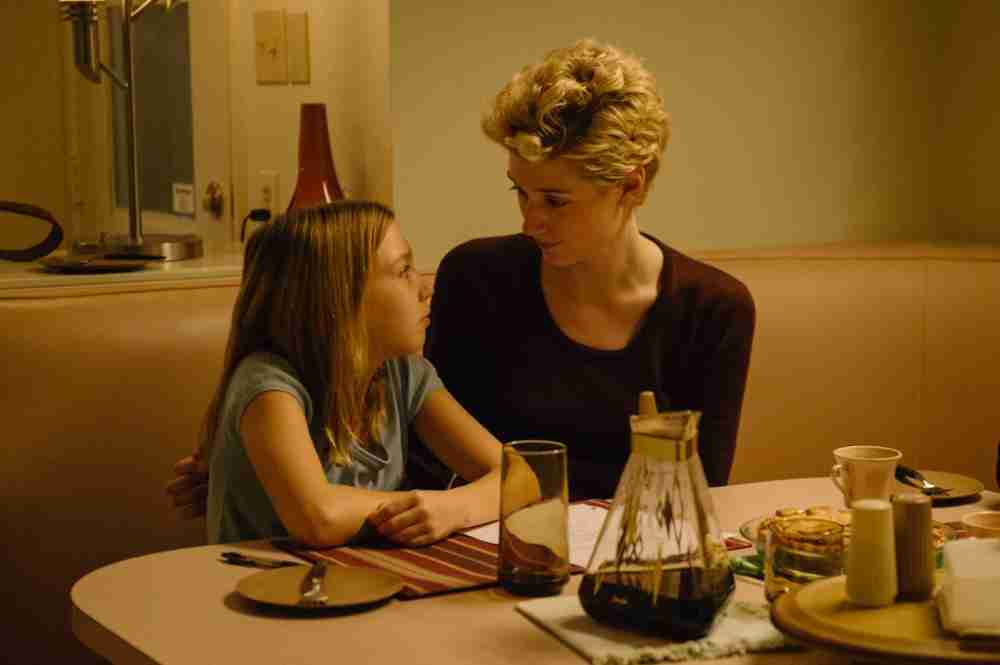
Few actors would be able to hold their own on stage opposite Isabelle Huppert and Cate Blanchett, but at the beginning of Debicki’s career, she did just that in Benedict Andrews’ The Maids, earning a Best Newcomer award at the Sydney Theatre Awards. Debicki has continued to impress in a series of supporting parts: as Jordan Baker in The Great Gatsby (2013), the best part of a very flawed film; as Lady Macduff in Macbeth (2015) where she leaves a memorable mark with only a couple of lines; as the thoughtful, no-nonsense doctor in Everest; and as the captivating villainess in The Man from U.N.C.L.E.
Blonde, gorgeous, and 6’3”, she’s a costume designer’s dream with a rare, elegant figure. This made her the perfect choice to play Mrs G., the larger-than-life riding coach who seems like the most beautiful woman in the world, in Jennifer Fox’s The Tale. The film premiered at Sundance in January, and by the time it aired on HBO in the spring, critics were singling out her performance as one of the strongest in the film — the first time North America really took notice. Last year at TIFF, she played a pivotal supporting role in Breath, but the film wasn’t widely seen.
With starring roles in two films at the festival — as Virginia Woolf in Vita & Virginia and a member of the central ensemble in Widows — this may be the year that Debicki finally breaks out into the mainstream. – AH
Kaitlyn Dever (The Front Runner, Beautiful Boy)
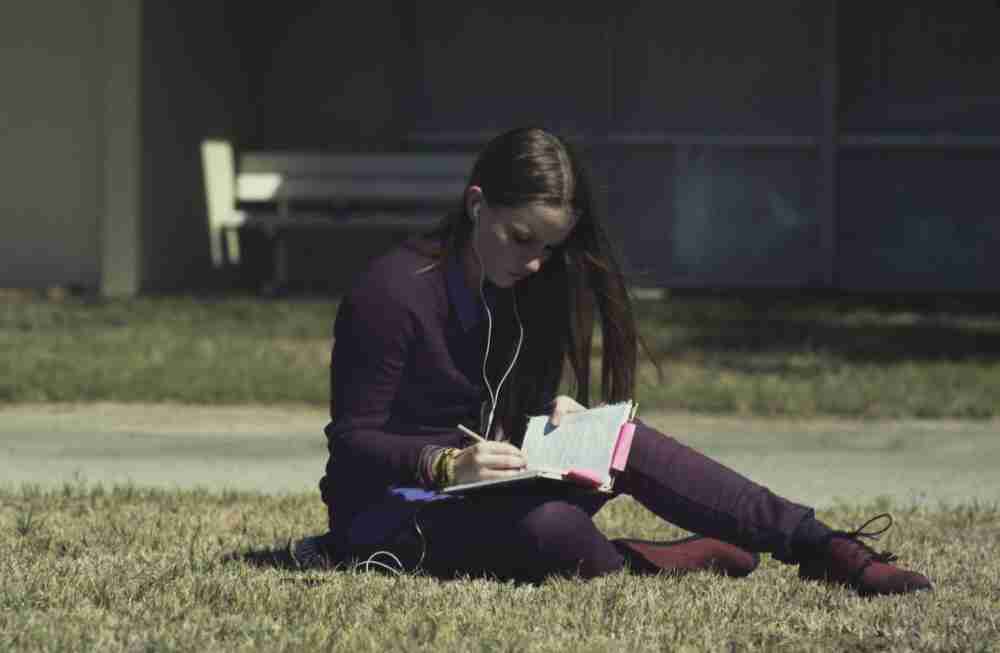
Once upon a time, Kristen Stewart was mocked and reviled for her very specific style of acting. The world seems to have since learned from their mistakes and recognised Stewart’s immense talent — her acting style is not awkward and wooden, but incredibly detailed and hyper-naturalistic. Kaitlyn Dever’s performance style seems to follow in Stewart’s footsteps, and I hope and think she’ll have an easier road to mainstream credibility.
Dever’s portrayals of young women are de-glamorised and incredibly vulnerable. For many of her characters, teenage stroppiness is simply a mask for deeper problems they’re afraid to express: that thread is clear in Short Term 12, Men, Women and Children, and the recent Outside In, in which her supporting turn far outshines leads Jay Duplass and Edie Falco. In each instance, Dever’s young women eventually break down, unable to conceal their true feelings any longer; Dever allows herself to be completely defenceless on-screen. She beautifully evokes the experience of being a teenage girl by bravely laying all those anxieties bare and showing the internal struggle of having so many feelings but not the language or means to express them.
You’ll see Dever mostly in supporting roles, as is true for her two TIFF titles, The Front Runner and Beautiful Boy. I’m particularly curious to see her act opposite Timothée Chalamet in Beautiful Boy, a film that appears to be explicitly about the struggles of being a young person and the destructive behaviour that can spawn from those struggles. That’s ground that both Dever and Chalamet have already covered and mastered. – OS
Sarah Gadon (The Great Darkened Days, The Death and Life of John F. Donovan)
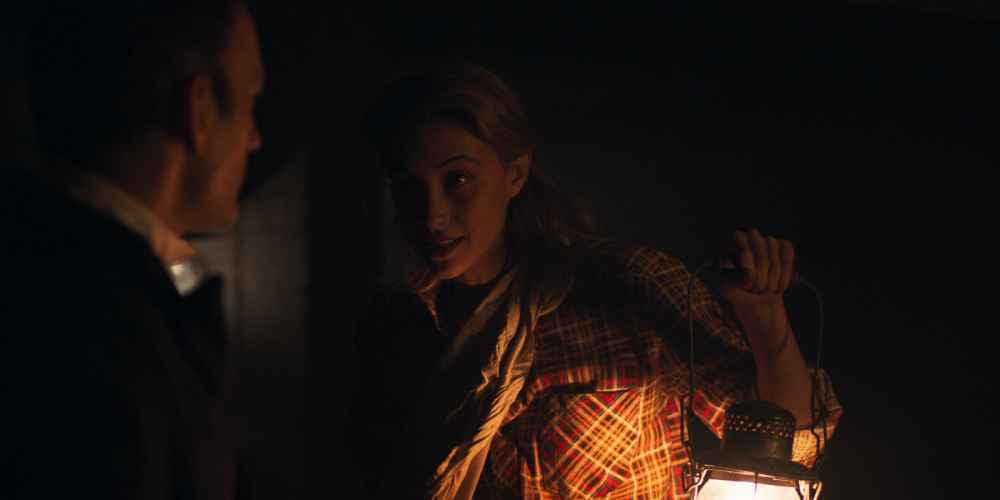
Perhaps best known for her haunting turn as Olivia Hutton in Indignation, Sarah Gadon has been a staple of Canadian and international arthouse cinema for the last decade, making her a staple at TIFF. She’s played everything from ghosts to women talking to ghosts, from a young Queen Elizabeth II in A Royal Night Out to the dead mother of Julianne Moore’s famous actress in Maps to the Stars.
Gadon has particularly carved out a niche for stylized performances. She’s played chilly women in David Cronenberg’s recent films (notably, Robert Pattinson’s wife in Cosmopolis), the ethereal pregnant wife to one of Jake Gyllenhaal’s doubles in Denis Villeneuve’s Enemy, and she’s pulled off naturalistic period acting as the young Queen Elizabeth II in the delightful comedy A Royal Night Out (opposite Bel Powley, also on our list).
She continues this trend with a supporting turn in Quebecois director Maxime Giroux’s The Great Darkened Days, as a sadistic American woman who keeps another woman (Soko) captive as her pet dog, and helps to kidnap the film’s protagonist. Gadon uses her blonde beauty here to play the part of the innocent without ever letting us forget who has the power, in a turn that is often very funny and always unsettling.
Gadon will also appear in Xavier Dolan’s English-language debut The Life and Death of John F. Donovan opposite a who’s who of international celebrities, perhaps making this stalwart of the festival a better known entity in the coming years. – AH
Lucas Hedges (Boy Erased, Ben is Back, Mid ‘90s)
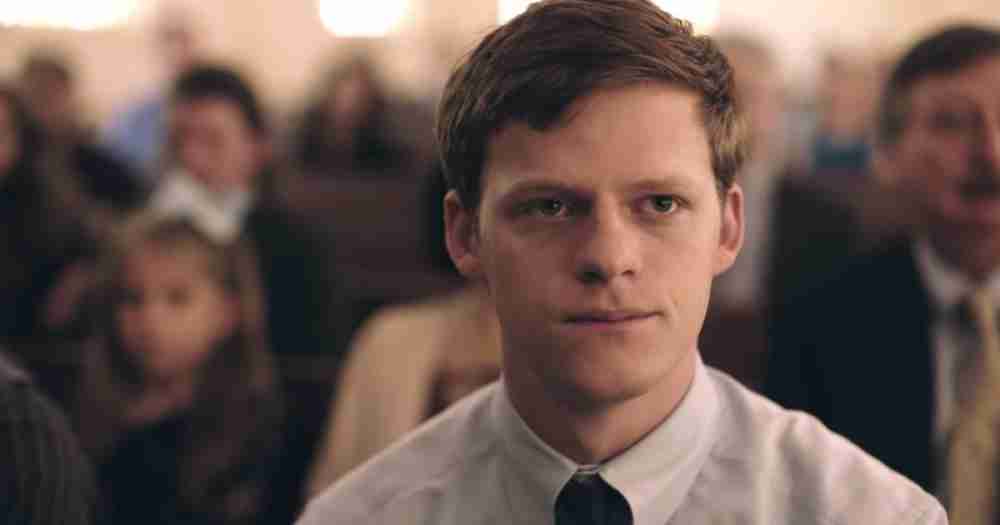
Although only 21 years old, Lucas Hedges often seems older in many of his roles. This seems to stem from his talent for appearing casual; while some actors perform in a register of heightened intensity, Hedges catches our eye because he doesn’t seem to care if we watch him. Already in Manchester by the Sea, and later on in Three Billboards outside Ebbing, Missouri, the young actor never seemed to be acting for the camera, but rather for the other performers around him. This sense of connection with his co-stars made for some of the best scenes in Lady Bird, where his character’s relationship with Saoirse Ronan’s Christine “Lady Bird” McPherson was one of mutual trust and respect.
Interestingly, and in a way that seems common to many actors of this young generation, Hedges seems keen to select roles that will challenge the unspoken, heteronormative rules of screen persona. After playing a closeted gay man in Lady Bird, he will portray a young man sent to gay conversion therapy by his parents in Boy Erased. Hedges has talked in interviews about his own relationship to masculinity, and the exciting possibilities that lie beyond the common rules about how men should act or appear — his openness on screen must be based on something real. – Elena Lazic
[click_to_tweet tweet=”‘Lucas Hedges never seems to be acting for the camera, but rather for the other performers around him.'” quote=”‘Lucas Hedges never seems to be acting for the camera, but rather for the other performers around him.'”]
Daniel Kaluuya (Widows)
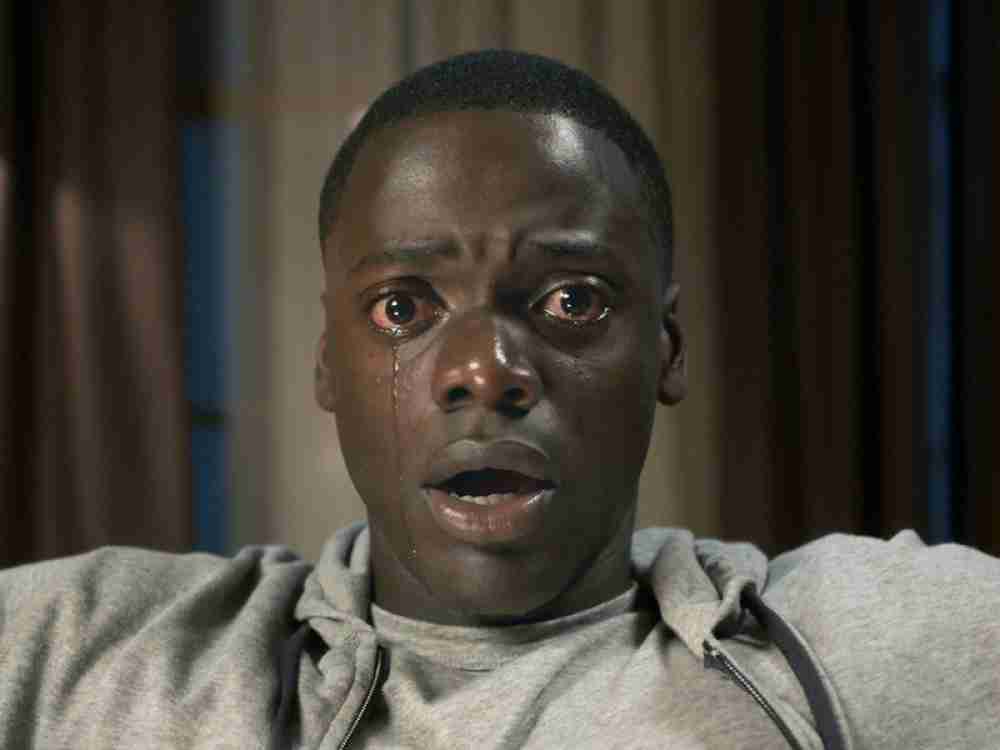
Get Out, Jordan Peele’s biting horror-comedy about racism in liberal white America, doesn’t have a typical protagonist. Often, a horror film’s point-of-view character is fragile or vulnerable in some way — isolated, coping with tragedy, or maybe bullied and terrorized before the plot even begins — which engages the audience’s protective instincts. But from the moment Daniel Kaluuya steps on screen, it’s clear that Get Out isn’t that kind of horror movie.
Kaluuya’s unhurried movements and comfortable smirk give us a sense of Chris right away: he’s handsome and self-secure, with an easy charm, a burgeoning photography career, and a (seemingly) loving girlfriend. He understands the potentially fraught situation he’s entering, as a black man meeting the wealthy parents of his white girlfriend, but chooses to take the plunge anyway. Throughout the first third of the film, Kaluuya’s relaxed posture and expressive eyebrows give us the sense of a man secure in himself and aware of the dangers around him. He faces highway-cop racism with a half-smile and practiced words: Chris has, unfortunately, heard this all before. You don’t worry about Chris; you want to have him over for dinner.
Kaluuya’s performance is all the more remarkable because it’s primarily reactive. We mostly get to know Chris’ character through silent reaction shots in which Kaluuya responds, subtly or overtly, to the speech and actions of others. As his girlfriend’s white family react bumblingly to Chris as her black boyfriend, Kaluuya’s face creases with just the faintest of flickers, reflecting a lifetime of suppressing retorts to offensive remarks. When faced with threats, from microaggressions at dinner to racial profiling on the highway, Chris doesn’t posture — but he doesn’t back down either. He shakes his head or huffs out a little laugh, believing himself resigned to the reality of racial oppression. Nothing cows him or provokes him to lash out.
That’s the point: the horror of Get Out lies in Chris slowly coming to realize the extent of his own vulnerability. Chris thought he had a handle on the dangers that racism posed to his life, but he was very wrong. The film’s villains seek to render Chris powerless within his own body, a helpless passenger as someone else uses his form for the rest of his natural life. Kaluuya portrays Chris as a figure we know we can rely on, making it devastating when we — and Chris — feel the ground fall out from beneath him.
As the oddities mount, Kaluuya portrays Chris’s growing suspicion through the strength of his reactions. Though Chris’ stoicism is clearly a defense he’s built up against a world of threats, this neutrality and restraint becomes more and more difficult for him to maintain. As the nature of his peril is finally revealed, Chris can’t even begin to hide his shock. Staring wide-eyed into the camera, one tear streaking his cheek, Kaluuya’s face is utterly, shatteringly open.
Kaluuya followed up his much-lauded performance as Chris with a victory lap: a meaty supporting role in 2018’s Black Panther as W’Kabi, a citizen of the African nation of Wakanda. Witnessing the legacies of colonialism, Wakanda hides its technological advancement and unique natural resources under the guise of third-world poverty to protect itself. When an outsider challenges Wakanda’s kingship, W’Kabi sides with the challenger against his friends and even his wife because he wants Wakanda to break free of isolationism and take its rightful place as a global power. Kaluuya’s W’Kabi is a pragmatist who’s tired of living in fear and who believes he’s acting in Wakanda’s best interest. Even when W’Kabi sides with the villain of the film, we’re uncomfortably aware he may have a point.
This year, Kaluuya returns to TIFF in Widows, director Steve McQueen’s heist thriller about four women who undertake a desperate plan when their husbands die in debt to a crime lord. – Mary Angela Rowe
[click_to_tweet tweet=”‘In GET OUT, Kaluuya portrays Chris as a figure we know we can rely on, making it devastating when we — and Chris — feel the ground fall out from beneath him.'” quote=”‘In GET OUT, Kaluuya portrays Chris as a figure we know we can rely on, making it devastating when we — and Chris — feel the ground fall out from beneath him.'”]
Barry Keoghan (Black ‘47)
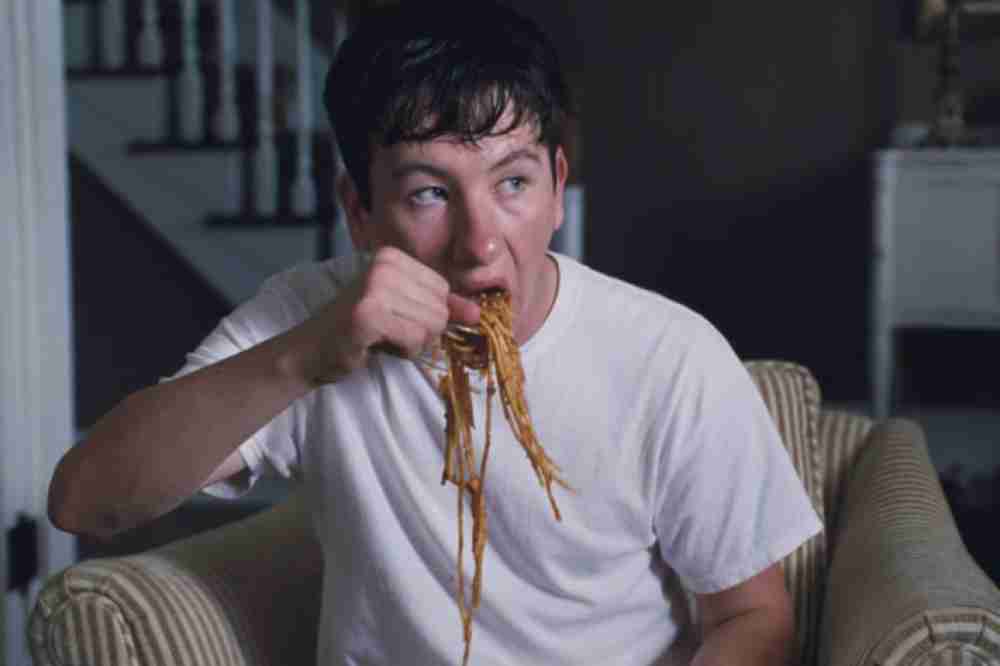
Barry Keoghan returns to TIFF this year with a small supporting role in Black ‘47, an Irish period drama about the 1947 famine. If you’ve been paying attention to the festival circuit, Barry Keoghan has been an obvious ‘Actor to Watch’ since his supporting turn in ‘71 as a teenager desperate to kill for the IRA, but in over his head. It was a small part, but Keoghan left a strong impression as the very conflicted boy. I interviewed him at Sundance back in 2016 for his co-starring role in Mammal, opposite Rachel Griffiths, as a homeless boy who manipulates and seduces the grieving middle-aged woman who takes him in.
But it wasn’t until Keoghan’s high profile turn in the Cannes Competition film The Killing of a Sacred Deer, as one very, very creepy antagonist, that the press starting taking notice. Whether he was calmly intoning death threats, devouring a plate of pasta like it was his prey, or speaking of his mother with a suspicious amount of admiration, Keoghan stole scene after scene, even opposite the likes of Colin Farrell and Nicole Kidman. He followed up the Cannes raves with a small part in Dunkirk (where he was reunited with ‘71 co-star Jack Lowden), this time as the sweet, innocent heart and soul of the private fleet Dunkirk rescue mission. – AH
Garance Marillier (Ad Vitam)
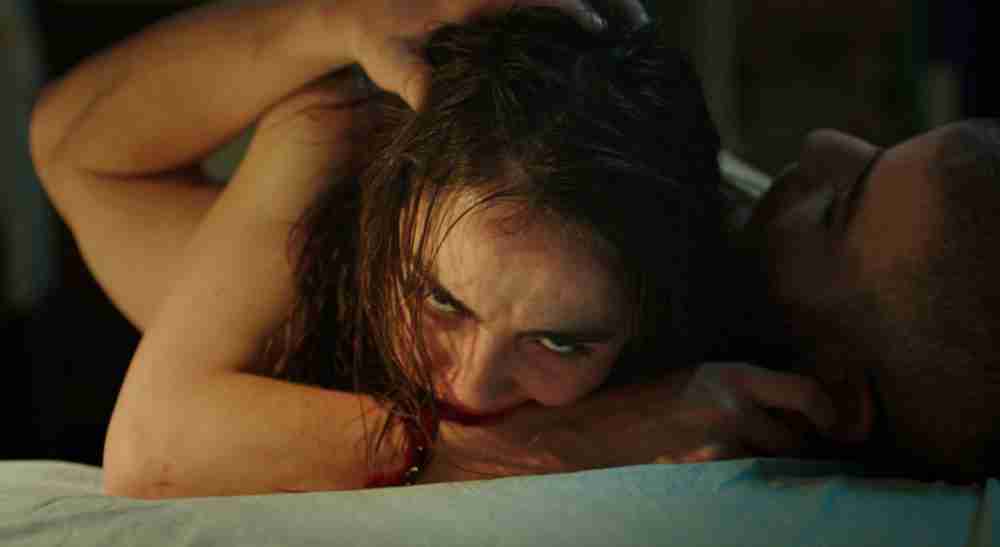
Julia Ducournau’s 2017 cannibalistic coming-of-age film, Raw, was one of the most thrilling releases in a year that was very good for horror (see: Thelma, Get Out, Personal Shopper). Ducournau’s story of Justine, a vegetarian veterinary student who begins to crave human flesh after a hazing ritual, would live or die by its lead actor since she’s in almost every scene. Garance Marillier brings Justine to life, in all her complexities: she’s surly, studious, principled, vulnerable, and frighteningly strong, a young woman suddenly wracked by appetites that both terrify and entice her.
The strength of Raw is that we understand the terrible pressures Justine is facing. As her hunger intensifies, Justine herself becomes something other than human. Marillier revels in the physical aspects of this transformation. Justine’s stiff-shouldered shuffle slowly loosens as the film progresses, her pursed lips stretching into a creepy grin. The climax of the film sees Justine in a blackout-drunk fugue, on all fours, snapping her jaws weakly at the hands of a corpse. But as Marillier’s posture shifts farther and farther away from upright and controlled, she makes sure we never lose sight of Justine’s humanity. Even as we watch Justine lose control, we also see her fighting it every step of the way.
Marillier returns to TIFF this year in Ad Vitam, a French television series that follows a hard-boiled detective investigating a rash of suicides in a future where humans can live forever. – MAR
https://seventh-row.com/2017/03/10/raw-julia-ducournau/
Bel Powley (White Boy Rick)
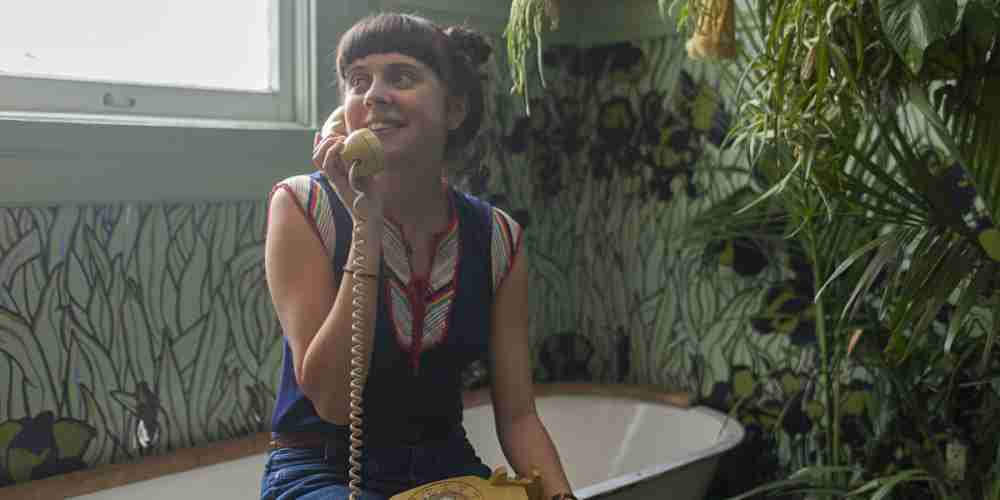
So far, Bel Powley’s career is notable for two quite radical portraits of teenage girlhood. Both Minnie in The Diary of a Teenage Girl and Carrie in Carrie Pilby are bright, vibrant young women bursting with potential and discovering themselves in ways that are rarely shown in film.
15-year-old Minnie’s sexual awakening, prompted by her mother’s boyfriend, is tumultuous and messy. It’s a rare film to frankly portray the joy, shame, and everything in-between of a teenage girl confronting her sexuality for the first time. When Minnie looks at herself in the mirror naked, Powley ensures that this scene isn’t in service of a voyeuristic audience: instead of positioning herself delicately, she simply stands there, relaxed, observing herself with nothing more than casual curiosity. It’s just one example of how committed Powley is to truthfully expressing her characters’ complex inner lives, rather than giving a self-conscious, glamorized ‘performance’. Perhaps most refreshing is Minnie’s self confidence: while she faces doubt and confusion as she’s figuring herself out, there’s confidence and a gutsy lack of poise in her gait. At Minnie’s highest points, Powley’s infectious, full-bodied performance allows us to revel in the joys of coming-of-age.
In Susan Johnson’s lesser seen Carrie Pilby, Powley once again shines as an outspoken and confident character. Johnson herself described Carrie as a “female Holden Caulfield”. Simply gender flipping that young, arrogant genius archetype feels revolutionary: women are hardly ever allowed to be that intelligent on-screen, much less know it and own it. Several (mostly male) critics dismissed the film upon its TIFF premiere, calling her character grating and unlikeable, which is a clear sign to me that we need more characters like Carrie and more performers like Powley who are willing to make her as flawed and complicated as she is. Powley absolutely convinces you of Carrie’s immense intelligence; you can very clearly see thoughts race through her head and take shape. Powley also walks the tricky psychological tightrope of portraying a character who is smart enough to be aware of her own insecurities while still struggling to deal with them. She’s constantly psychoanalysing herself.
It’s rare for a young actress to be afforded two such complex roles so early in her career. Powley has been dealt mostly supporting parts since, and that also seems to be the case for her latest TIFF film, White Boy Rick (although Seventh Row is a fan of the film’s director, ‘71’s Yann Demange). There aren’t many young actors who have proven themselves willing to commit to a character as fully Powley — filmmakers would do good to recognise and make use of that. – OS
Florence Pugh (Outlaw King)
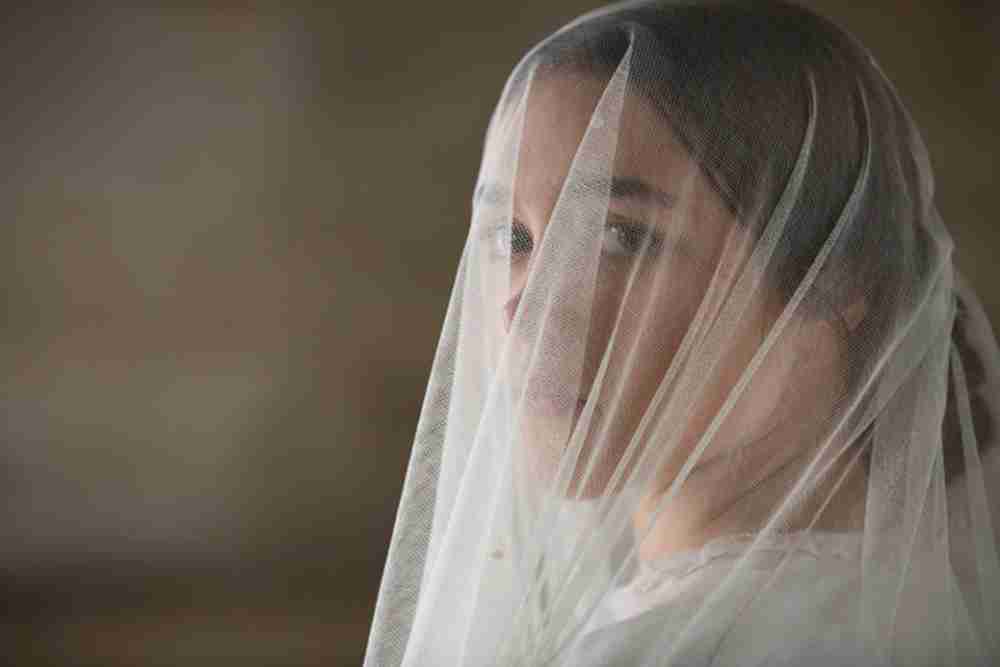
William Oldroyd’s Lady Macbeth is a tale about the savagery that roils beneath smooth exteriors. In 1865, Katherine (Florence Pugh) finds herself stifled after she’s married to an older man and packed off to his remote estate in Northern England. Whatever her expectations were of married life, they are thwarted: her husband ignores her, her father-in-law berates her, and she’s forced to spend every day immaculately dressed and doing nothing. All this changes when Katherine embarks on an increasingly reckless affair with one of her husband’s stablehands, setting off a dangerous chain of events.
Pugh is masterful at conveying the intense emotions that lie beneath Katherine’s calm features. In the first scene, a single-take close up of Katherine’s veiled face, she keeps glancing up at the taller man next to her — openly interested, not shy or solemn. Katherine is no shrinking violet: she’s clearly sexually curious, and Pugh’s face registers confusion rather than relief when her new husband rolls over and goes to sleep, leaving his bride untouched. As Katherine slowly realizes that her entire life will be confined to sitting indoors being ignored, her face closes. The camera holds for long moments on Pugh’s fine features as she moves through the hallways, expressionless but certainly not neutral. There’s something restless in her dark eyes, an appetite for something that she takes it on herself to feed.
Katherine resists either sympathy or demonization: she’s undoubtedly a victim of patriarchal oppression, but her rebellion isn’t palatable or inspirational. Instead her escalating actions are violent, impulsive, and genuinely shocking. Pugh conveys this complexity by portraying what makes Katherine genuinely dangerous: even at her most passionate she is still calculating. She’ll coolly converse while committing murder, or declare her consuming love while wearing the same expression. Nothing disturbs Pugh’s deliberate movements or her low and level tone of voice. You get the sense that nobody quite realized what they got in Katherine, the ferocity and selfishness of her nature, until it was too late.
This year Florence Pugh graces TIFF’s screens again as Elizabeth de Burgh, queen consort of Robert the Bruce in Outlaw King. Later this year, she’ll star in master director Park Chan-Wook’s TV miniseries The Little Drummer Girl, adapted from a John LeCarre novel for AMC. – MAR
[click_to_tweet tweet=”‘In LADY MACBETH, Pugh is masterful at conveying the intense emotions that lie beneath Katherine’s calm features.’” quote=”‘In LADY MACBETH, Pugh is masterful at conveying the intense emotions that lie beneath Katherine’s calm features.’”]
Ben Schnetzer (The Death and Life of John F. Donovan, The Grizzlies)
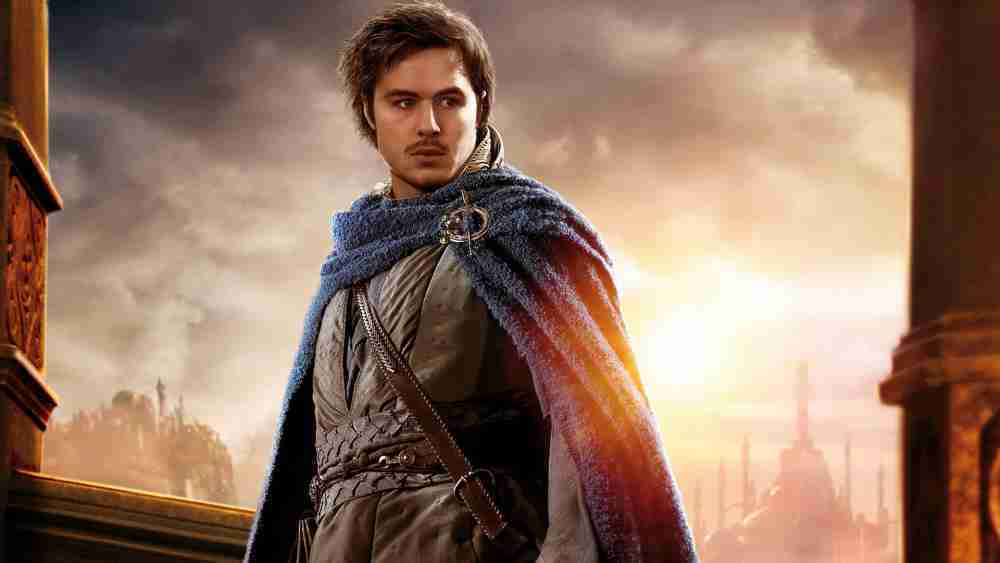
Few of us may remember Warcraft, the film adaptation of the popular online video game of the same name. The film was not a good one, and the sequel that its final sequence so confidently hinted at will probably never get made. But from the ruins of this aborted franchise, one man deserves our praise and recognition. In the role of benevolent druid Khadgar, Ben Schnetzer delivered a strikingly persuasive performance. Although most people first took note of him for his appearance in Pride, this film was my introduction. Whenever he appeared on screen, Schnetzer would own the scene, his confidence and dedication to the role translating into a hypnotically genuine and heartfelt turn, even in this minor role.
This sense of directness lent itself well to the much more realist aspirations of Goat, a brutal and touching drama about the pressures — psychological and physical — that young students can fall prey to in university fraternities. Schnetzer plays Brad, the younger brother of Nick Jonas’ Brett, and the film charts the fraught relationship between the two young men. Harboring previous hangups about each other and about themselves, the two basically communicate through hazing rituals and dares. But it’s Schnetzer, as the less conventionally macho of the two, that the film focuses on. In a role that requires him to express a lot with his body alone, he carries us through every step of his character’s emotional journey, from shy and generally apprehensive, to dangerously belligerent.
Goat might still be the best film that Schnetzer has starred in. But one should hope that, after his more mainstream appearance in Xavier Dolan’s The Death and Life of John F. Donovan this year at TIFF, people might finally start to give him the roles that he deserves. – EL
Karelle Tremblay (The Fireflies are Gone)
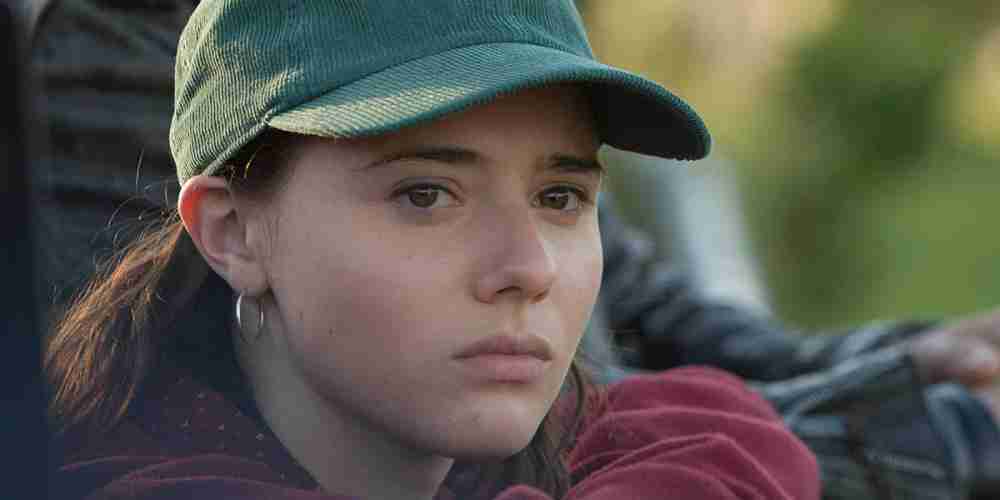
At just 22, Quebecois actress Karelle Tremblay is already one of the most exciting young Canadian actors of the decade. I first took notice because of her striking and nuanced performance as the teenage daughter and co-lead in Anne Emond’s Our Loved Ones, for which she was named one of TIFF’s Rising Stars. Our Loved Ones let Karelle Tremblay show her emotional range as an actress, playing a young woman discovering herself away from home while still feeling tied to her father, and then later, dealing with grief.
She’s since gone on to work with a who’s who of Quebecois filmmakers:; she appeared in Francois Girard’s Hochelaga at last year’s festival, and she returns this year as the lead in Sebastian Pilote’s Fireflies Are Gone (La disparition des lucioles), one of the festival’s best. Pilote’s film is the rare coming-of-ager about a smart, outspoken female teenager. In the film’s first scene, a dinner to celebrate Tremblay’s characters’ birthday, she impresses with her comic timing and her sharp line deliveries, letting us know that she resents the event. Her character is abrasive, but Tremblay is completely compelling, winning us over with her Holden Caulfield-esqe disillusion with the adult world. Her performance only deepens as the film progresses, in what is the best showcase thus far for this very talented actress. – AH
Odessa Young (Assassination Nation, A Million Little Pieces)
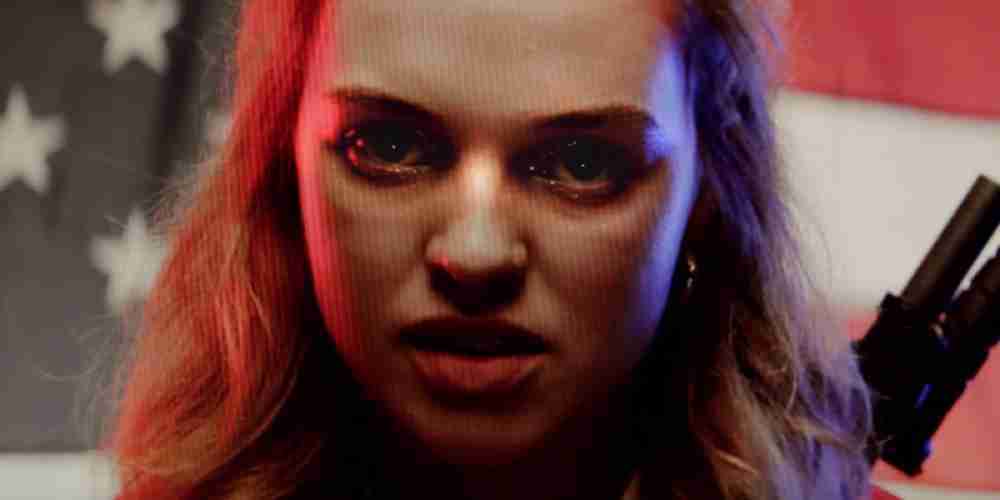
Odessa Young first came on my radar in 2015 when, as a teenager, she played the titular roles in two small Australian films at TIFF, The Daughter and Looking For Grace — both troubled teenagers but played in very different registers. The Daughter is a dark drama loosely based on the Ibsen play The Wild Duck, in which Young’s Hedvig is a wise-beyond-her-years teenager discovering a dark family secret. The comedy drama Looking For Grace required a lighter touch for her portrayal of a much less mature teenager on an aimless road trip across country, in part to escape her over-dramatic family. In both films, Young shares scenes with Australian screen (and stage) legends — Geoffrey Rush, Radha Mitchell, and Richard Roxburgh — and not only holds her own but stands out as a budding young talent. In the interim, she appeared in Sweet Virginia, but she’s back at TIFF this year in two high profile films. She’s one of a trio of leads in Assassination Nation and appears in A Million Little Pieces. – AH
Read all our TIFF coverage here >>
At Seventh Row, we have a whole series dedicated to spotlighting the brightest emerging acting talents in the industry. Our Bright Young Things series includes detailed profiles (we watch their entire filmography so we can write from the most informed perspective possible) of Jack Lowden and Josh O’Connor. Stay tuned, because there’s a lot more to come — maybe even for some of the actors mentioned in this piece. We also did another roundup of emerging talent at Sundance this year, including mention of Jessie Buckley’s stellar turn in Beast.

